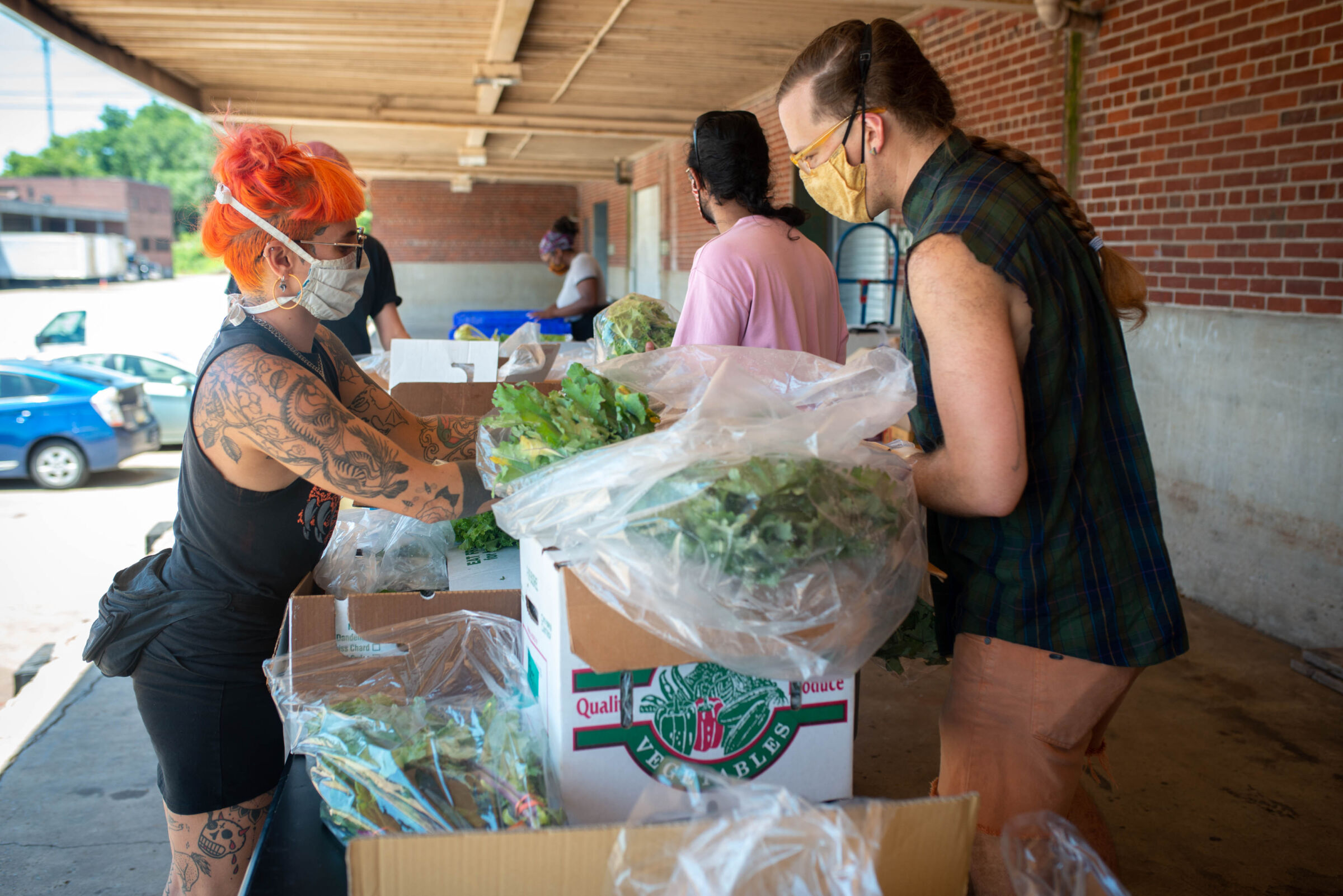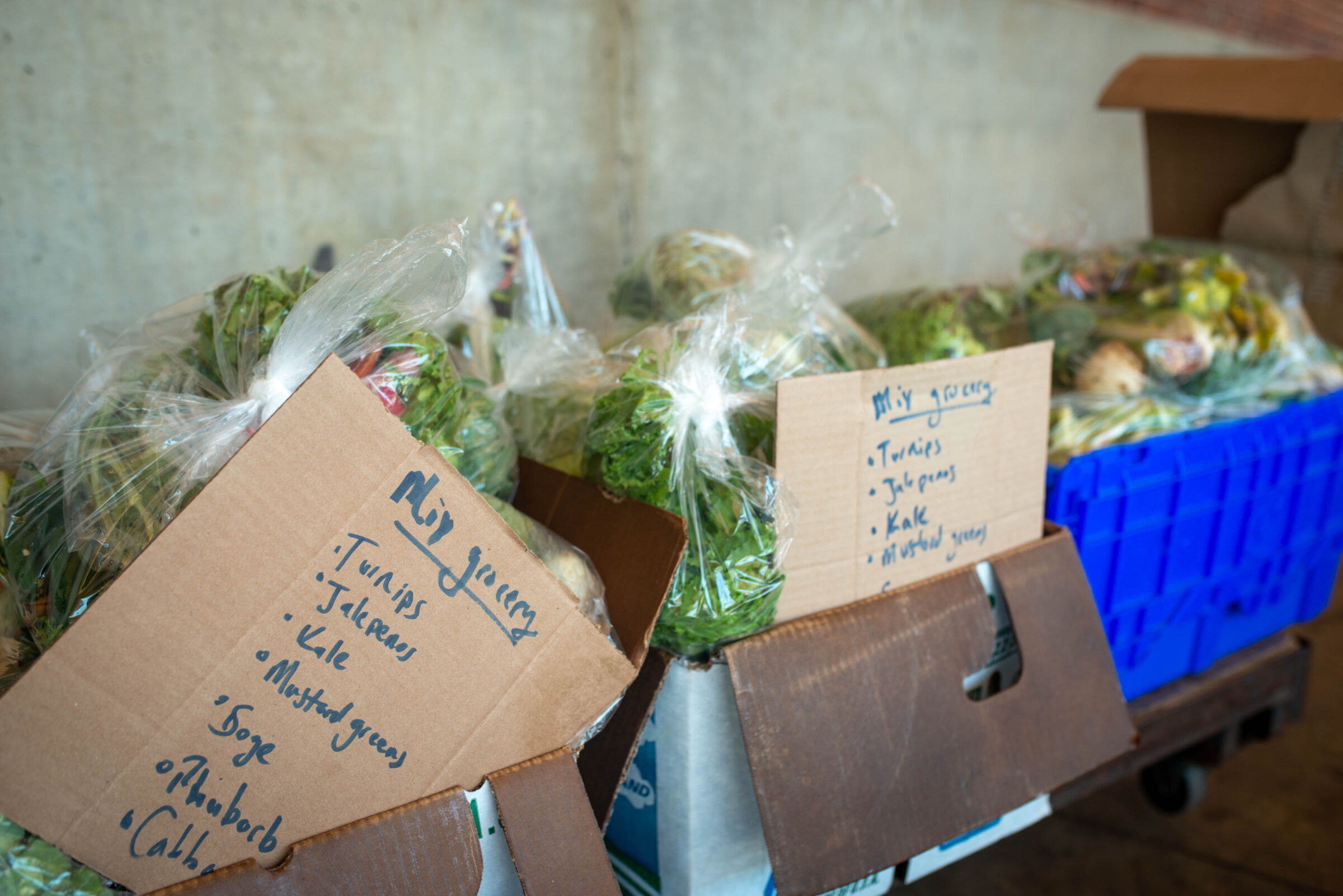Coming Together in Times of Crisis: Two Chefs Launch West Philly Bunnyhop to Fill a Critical Need
View more stories from our 2021 Annual Report
As part of the Philadelphia Food Justice Initiative (PFJI), Reinvestment Fund, in partnership with the Philadelphia Department of Public Health and Wells Fargo, awarded grants to local organizations fighting food injustice. West Philly Bunnyhop was one of the grantees at the end of 2021.
One would be hard pressed to find anyone who cannot recall where they were and what they were doing in March 2020 when word spread that a lockdown was imminent due to COVID-19. When Pennsylvania Governor Tom Wolfe ordered the state shutdown, fear, panic, shock, desperation and uncertainty gripped the region, as thousands experienced unexpected layoffs and job loss.
Among them were friends Katie Briggs and Jena Harris, two well-connected and experienced chefs in the Philadelphia food industry.
Wanting to do something productive with their time while assisting community members experiencing food insecurity, the two decided to do what they do best: Cook.
Tapping into their network, circles of friends and volunteers, the two showed up at the park on April 4, 2020, to distribute 50 quarts of homemade soup, toilet paper, fruits and vegetables, and PPE to whoever showed up. Out came the young and old, single people, and families, all made for a strong turnout. At the end of the distribution, Briggs looked at her friend and said, “That was great, let’s keep doing this.”
Thus began the West Philly Bunnyhop, a volunteer-led mutual aid group that champions “Free Food for the People”, no questions asked. Through it has been a framework that has worked in communities for decades, the concept of mutual aid gained widespread mainstream awareness during the pandemic when people sought meaningful ways to contribute and help out their neighbors—be it through monetary donations, picking up or preparing foods, volunteering their time, etc.
West Philly Bunnyhop filled a critical need—“getting food into the hands of people who need it,” Briggs said. And they recognized that redlining and structural racism had resulted in inadequate access to healthy food in certain neighborhoods in West Philadelphia.
Over time, West Philly Bunnyhop secured warehouse space and forged partnerships with the food bank, local restaurants, and local farmers to get fresh produce, prepared meals, groceries and household items to distribute in West Philly and different parts of the city. A team of volunteers also provided door deliveries to those who were homebound or unable to get to a distribution event. At the height of the pandemic, West Philly Bunnyhop estimates that at its peak served 3,000 people a week.
As the world began to open back up and the vaccine became more readily available, West Philly Bunnyhop shifted its model. Chris Kane, one of West Philly Bunnyhop’s administrators, shared that the organization was intentional about “decentralizing” its operations to truly make it a community-led effort by responding to community requests and making sure community members served as the frontline during distribution events.
The focus shifted to community fridges, a model that allows people to add food items or to take foods that are needed. The fridges are placed in moderate- to high-traffic areas and are filled on a weekly or biweekly basis. There are intentionally no security cameras to monitor the fridges to remove judgement and protect the anonymity of those who need food.
West Philly Bunnyhop filled a critical need—“getting food into the hands of people who need it,” Briggs said. And they recognized that redlining and structural racism had resulted in inadequate access to healthy food in certain neighborhoods in West Philadelphia.
As part of the Philadelphia Food Justice Initiative (PFJI), Reinvestment Fund, in partnership with the Philadelphia Department of Public Health and Wells Fargo, awarded grants to local organizations fighting food injustice. West Philly Bunnyhop was one of the grantees at the end of 2021.
PFJI supports community-driven solutions in areas where access to healthier food is needed the most. The initiative is informed by health justice, the collective movement to heal society and remove barriers that prevent individual and community well-being.
With the funds, West Philly Bunnyhop is working to purchase and start up three community fridges, as well as assist with efforts to plan and identify other community centers. The group has been intentional about its outreach in an effort to create meaningful connections with community stakeholders at each site, so that members of the community can be involved in the installation of their fridge. In addition, the funds are allowing West Philly Bunnyhop to offset rising food costs to incorporate some proteins into their offerings. This approach should set a foundation for stronger, sustained community buy-in to maintain each fridge.
“This decentralization model is an enterprise for those who want to be involved with mutual aid by organizing their neighbors to host distribution events,” Kane said. “It’s really about making sure your neighbors are fed.”
This project/program was funded (or funded in part) by the Pa. Department of Health’s Preventive Health and Health Services Block Grant.


